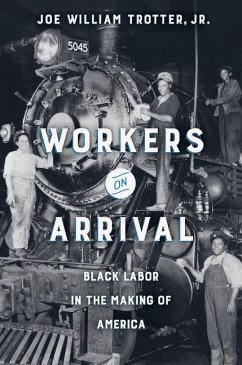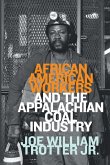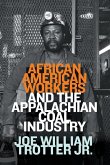"Few scholars have contributed more than Joe W. Trotter to Black labor history. His latest book, Workers on Arrival, is not only a brilliant synthesis by a master social historian but it marks a conceptual breakthrough by placing the black working-class--enslaved and "free"--at the center of the development of racial capitalism. Black workers were more than victims of rapacious violence and segregation; they were producers of wealth, the source of surplus value, fighters for economic justice. And now, in our neoliberal era of flexible labor and capital mobility, the future of Black workers is open to question. As journalists and pundits genuflect on the plight of the "white working-class," this is the book we should be reading. Profound, inspiring, and sobering."--Robin D. G. Kelley, author of Freedom Dreams: The Black Radical Imagination "Drawing upon a century of scholarship, Workers on Arrival provides a compelling, comprehensive overview of black labor from slavery to the present. At the same time, the book restores African American workers--especially urban workers--to their central place in the history of the American economy and the broader history of world capitalism."--Jacqueline Jones, author of American Work: Four Centuries of Black and White Labor, University of Texas at Austin "There is no way to read Workers On Arrival without seeing the forging of a nation long dependent on black labor--unfree and free. Joe Trotter does a masterful job of detailing the inextricable link among work, race, and nation."--Earl Lewis, coeditor of To Make Our World Anew: A History of African Americans "A timely focus on the importance of black workers in the making of America. Workers on Arrival establishes the foundational role of black labor in the US economy. There is no one better positioned than Joe Trotter, Jr. to tell a history of this scale."--Leslie M. Harris, author of In the Shadow of Slavery "Workers on Arrival makes a fantastic and well-timed contribution to labor and African American history and the history of American democracy. From slavery to the modern gig economy, black working-class men and women have transformed the raw materials of seed and soil, metal ore, wood, and coal, into food, buildings, and finished goods. It's a great read and a stunning synthesis of the past four decades of scholarship in labor, African American, and political history."--Elizabeth Faue, author of Rethinking the American Labor Movement
Hinweis: Dieser Artikel kann nur an eine deutsche Lieferadresse ausgeliefert werden.
Hinweis: Dieser Artikel kann nur an eine deutsche Lieferadresse ausgeliefert werden.








